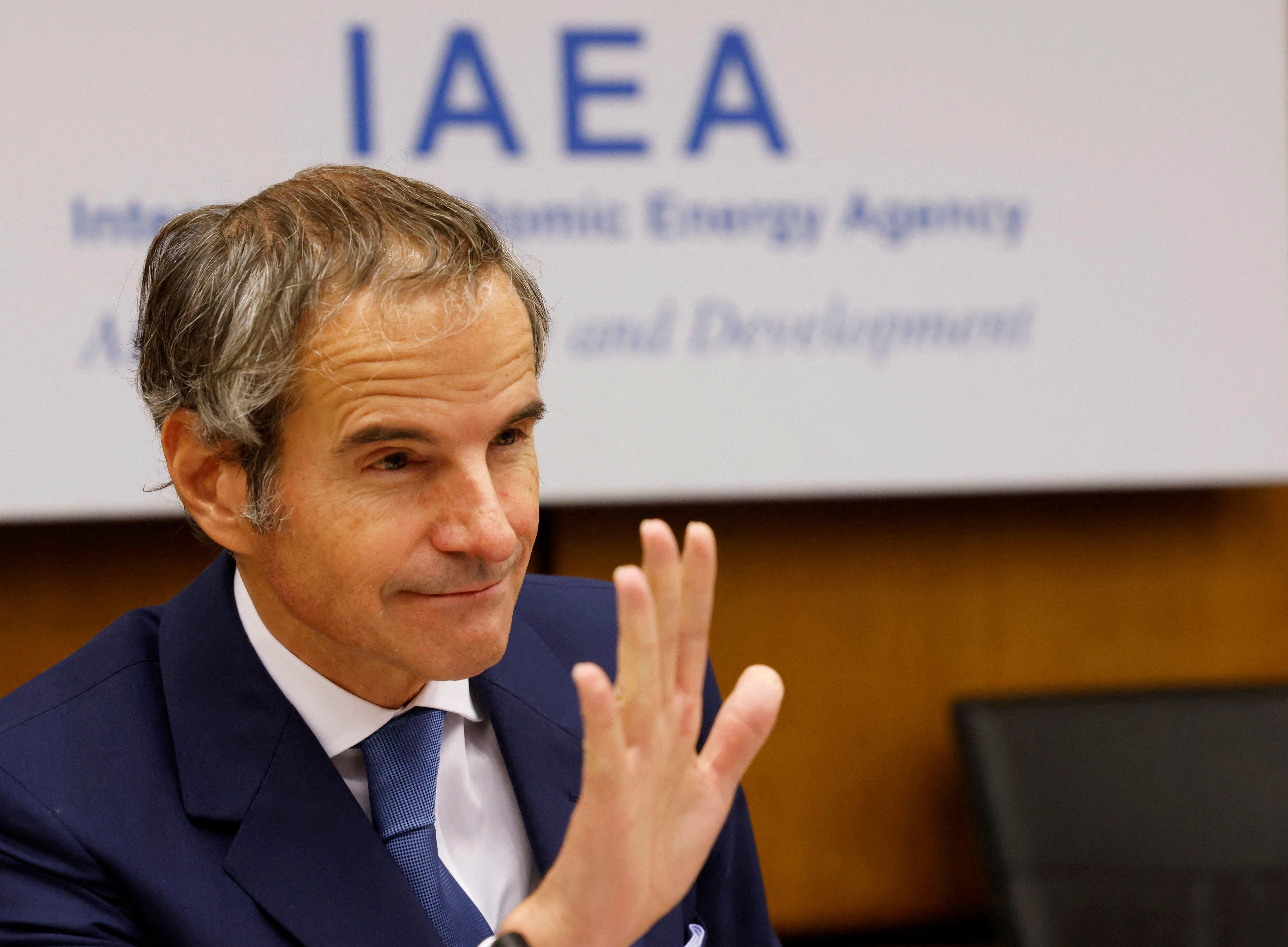Since former U.S. President Donald Trump withdrew from the 2015 Iran nuclear deal, Iran has progressively abandoned the deal’s significant constraints and expanded its nuclear program. Today, Iran stands as a nuclear weapons threshold state.
Experts warn that if Iranian leaders choose to weaponize their nuclear capabilities, they could amass enough fissile material for one bomb within a week and up to six bombs within a month, with the ability to develop a warhead in as little as six months.
Throughout this period, the International Atomic Energy Agency (IAEA), tasked with monitoring nuclear programs to ensure their peaceful nature, has seen its access to Iran’s nuclear activities diminish significantly. Iran's cooperation with the IAEA has waned since the U.S. reneged on the nuclear deal, including through breaches of its Comprehensive Safeguards Agreement with the agency, an agreement that predates the nuclear deal.
This is why the UK, Germany, and France — the so-called E3 nations — are reportedly pushing for an IAEA resolution to censure Iran at the upcoming Board of Governors meeting in Vienna. The proposed censure is based on Iran’s failure to provide satisfactory explanations about two suspected undeclared nuclear sites, where the agency believes nuclear activities took place before 2003. While the IAEA would be within its legal rights to censure Iran for these violations, such a move would likely achieve little and could risk significant escalation at a sensitive time in U.S.-Iran relations and the broader Middle East.
The Iran-IAEA dispute is intertwined with the collapse of the nuclear deal and the U.S.'s “maximum pressure” campaign against Iran, in place since Trump exited the deal in May 2018. This campaign has imposed unprecedented economic sanctions aiming to isolate Iran from global trade. In response, Iran has expanded its nuclear program as leverage against the U.S. and its allies for sanctions relief. Limiting IAEA access and hesitating to cooperate over past potentially illicit nuclear activities are tactics within this broader strategy.
President Joe Biden, elected on a platform that promised to revive the nuclear deal, has failed to fulfill this commitment. Early missteps in re-establishing U.S. credibility as a reliable negotiating partner contributed to a hardline stance from Iran's government under the late President Ebrahim Raisi. These missteps included hesitancy in lifting sanctions and ambiguous signals about the U.S.'s long-term commitment to the agreement. Consequently, Iran has grown increasingly skeptical of re-engaging in a deal without assurances of U.S. adherence, fearing a repeat of past betrayals. This wariness has only hardened Tehran’s resolve to resist pressures and pursue its nuclear ambitions, complicating diplomatic efforts further.
However, historical evidence suggests that a strategy of pressure aimed at forcing Iran to capitulate on its nuclear program and core national security interests, as pursued by the Trump administration, only provokes Iranian counter-escalation. Conversely, compromise and mutual concessions have proven effective, as demonstrated by the success of the JCPOA until Trump’s withdrawal and the de-escalation arrangement reached between the U.S. and Iran last summer.
With presidential elections looming in both Iran and the U.S., a shift toward increased pressure, signaled by an IAEA censure, could have serious repercussions. This move might lead to Iran’s case being referred to the U.N. Security Council or prompt the E3 states to “snap back” U.N. sanctions on Iran. Such developments would be highly counterproductive, dramatically escalating tensions and reducing the chances for diplomatic resolution.
In Iran’s current presidential race, some registered candidates are taking a more moderate stance on foreign and domestic policy. For instance, former parliamentary speaker Ali Larijani has signaled a desire to prioritize diplomatic resolutions to disputes between the U.S. and Iran. In this context, an IAEA censure would bolster hardline candidates and their rhetoric that the West is irreconcilably hostile towards Iran.
Furthermore, such a censure at this juncture would set into motion an escalation of tensions in the critical months ahead. Iran’s response to past IAEA censures in recent years — reducing cooperation with the agency and advancing its nuclear capabilities — suggests a similar or even stronger escalation might follow a new censure. The U.S. intelligence community, in its 2024 Worldwide Threat Assessment, warned that Iran “probably will consider installing more advanced centrifuges, further increasing its enriched uranium stockpile, or enriching uranium to 90 percent uranium-235” in response to a new IAEA censure or other forms of pressure.
Recognizing these risks, the Biden administration reportedly opposes the E3's push for a censure. A more nuanced approach from the IAEA’s Board of Governors would be prudent. Rather than censuring Iran, the board should acknowledge Iran’s non-cooperation while keeping the diplomatic window open. Over the past year, the U.S. and Iran have managed to avoid significant escalations, a trend that should continue until new administrations take office in Tehran and Washington. Both sides should aim to stabilize the current status quo, reduce regional tensions, and lay the groundwork for a broader diplomatic settlement. Ultimately, the outcomes of the upcoming presidential elections will be crucial in determining whether pro-diplomacy forces can prevail.
- Biden's Iran policy has been a total failure ›
- Killing the Iran nuclear deal was one of Trump's biggest failures ›
















